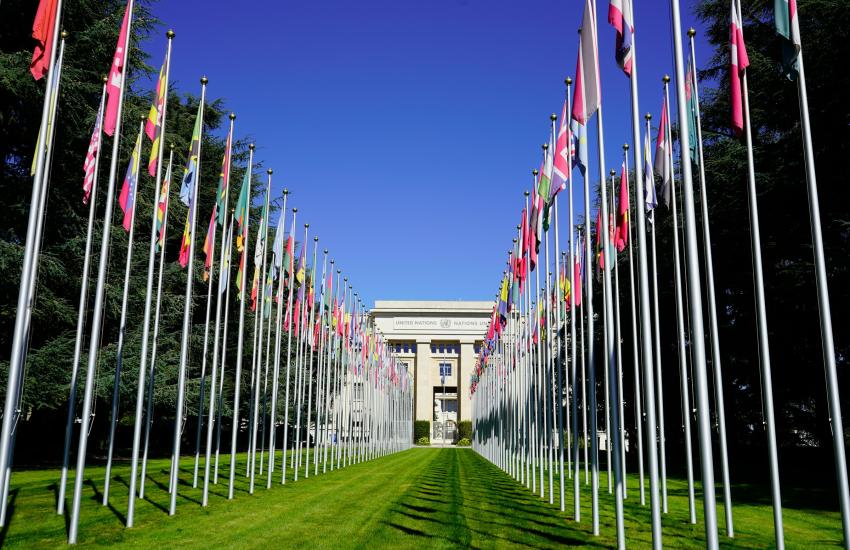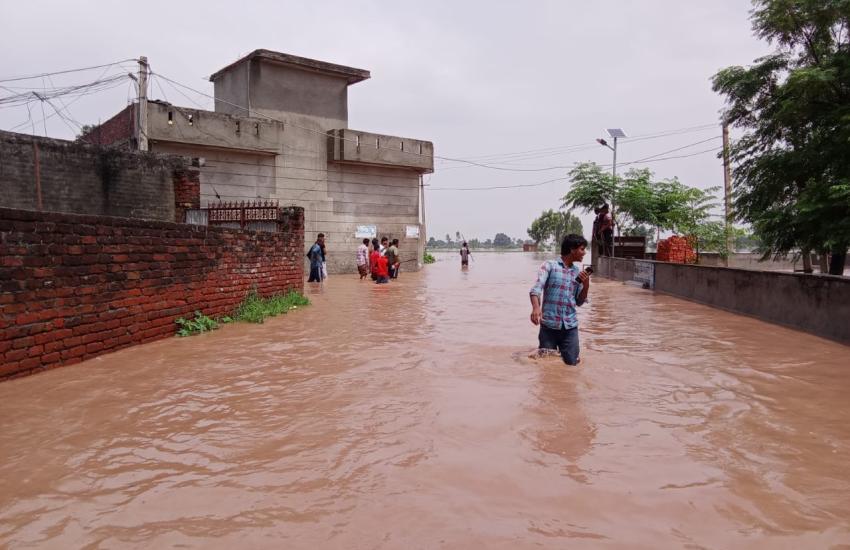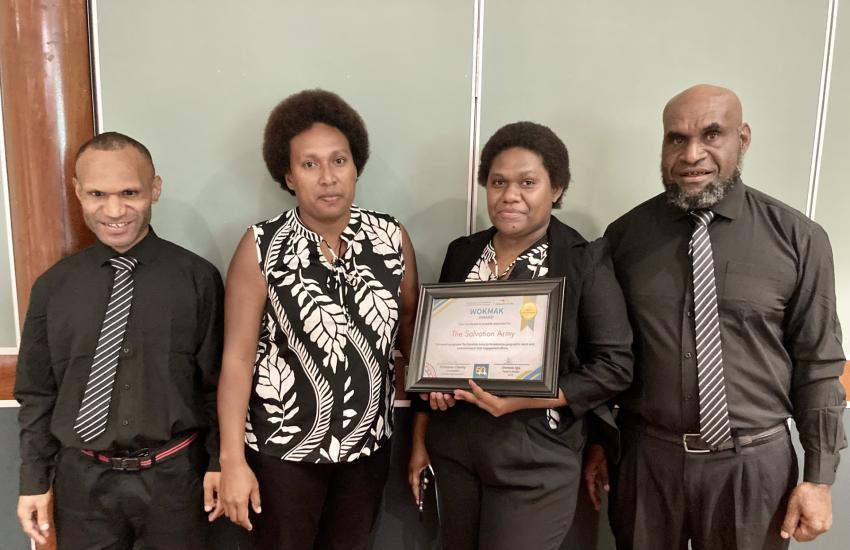THE Salvation Army is continuing its response in Vanuatu to people affected by Cyclone Pam, with particular focus on three remote communities on the island of Tanna. Latest figures suggest that 166,000 people on 22 islands have been impacted, of whom 110,000 still have no clean drinking water. The Vanuatu Government, with the assistance of the United Nations (UN) and other agencies, has sent out teams to conduct assessments in all impacted areas.
Craig Arnold, from the international logistics company UPS, has been released to partner with The Salvation Army's International Emergency Services on Vanuatu. He travelled with Salvation Army team member Mike Andrews and a local guide to the island of Tanna to conduct an assessment in the villages of Lownapaiu, Lous and Lowental. The journey from the main island of Vanuatu, Efate, required the assessment team to travel by plane, boat and four-wheel drive vehicle, followed by a five-hour walk through the jungle.
'No one else had been to these areas,' reports Craig, 'because they are hard to get to and the population is relatively small. Ninety per cent of homes are damaged too badly to live in. People are living in caves and walking up to two hours to find water sources. The hardest-hit village sits on the top of a 250-foot cliff above the waterfront. Their staircase down to the water has been destroyed so they can only reach it via a narrow, steep mountain path.
'There is a total of 1,000 people in the three villages. The furthest north village, Lowental, is a 90-minute mountain hike from its nearest neighbour to the south, Lous. Lous is accessible by very small boat. From Lous down to Lownapaiu is another two-hour walk. From Lownapaiu to the airstrip is a six-hour walk or a two-hour 4x4 drive (the village owns one Land Cruiser).
'Based on assessments, the local government has asked The Salvation Army to support these three villages as they are not receiving help from other agencies. The priorities are water, food and shelter.
'With the help of the UPS Foundation, The Salvation Army arranged an airlift from Vanuatu's capital, Port Vila, to the airstrip on Tanna where, with the help of the World Food Programme and UNICEF (the United Nations children's agency) water was offloaded into a portable warehouse until all transportation was finalised.
'Within 24 hours – working with a local non-governmental organisation (NGO), Liberty for the Nations – we moved 1,300 litres of fresh water as close as possible to each village, using a combination of 4x4 vehicles, a small boat and carrying by hand. Another NGO, Dragon Fly, used its desalination ship to drop an additional 5,000 litres of fresh water on a small beach about a four-hour hike away (the closest possible location). The good news is that a 4x4 truck can get down to the tanks and back to the southern two villages in one day. (This will become a normal process for the next couple of weeks for one of the chief's sons).
'The local government also enlisted a French military helicopter to deliver food rations for all three villages to a landing area we GPS tagged the day before. This is enough food for up to two weeks.'
The next step will be to arrange for essentials to be transported on ocean freight instead of air for efficiency. This takes longer, but the initial needs for food and water have now been covered. In the next few days a water supply engineer will be taken to the villages to assess the rebuilding or repairing of water pipes and tanks. Options are also being considered for the provision of sustainable shelter.
Craig concludes with a simple but meaningful sign-off: 'Lots to do!'
Report by IHQ Communications
International Headquarters





